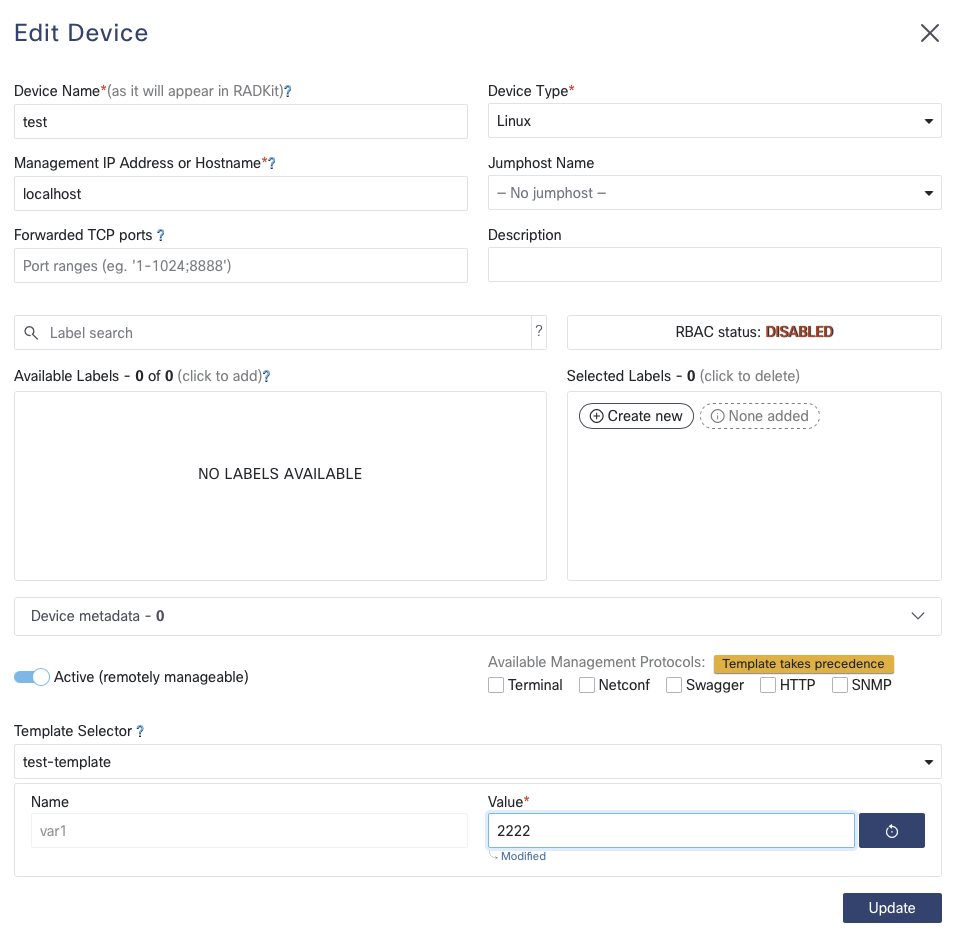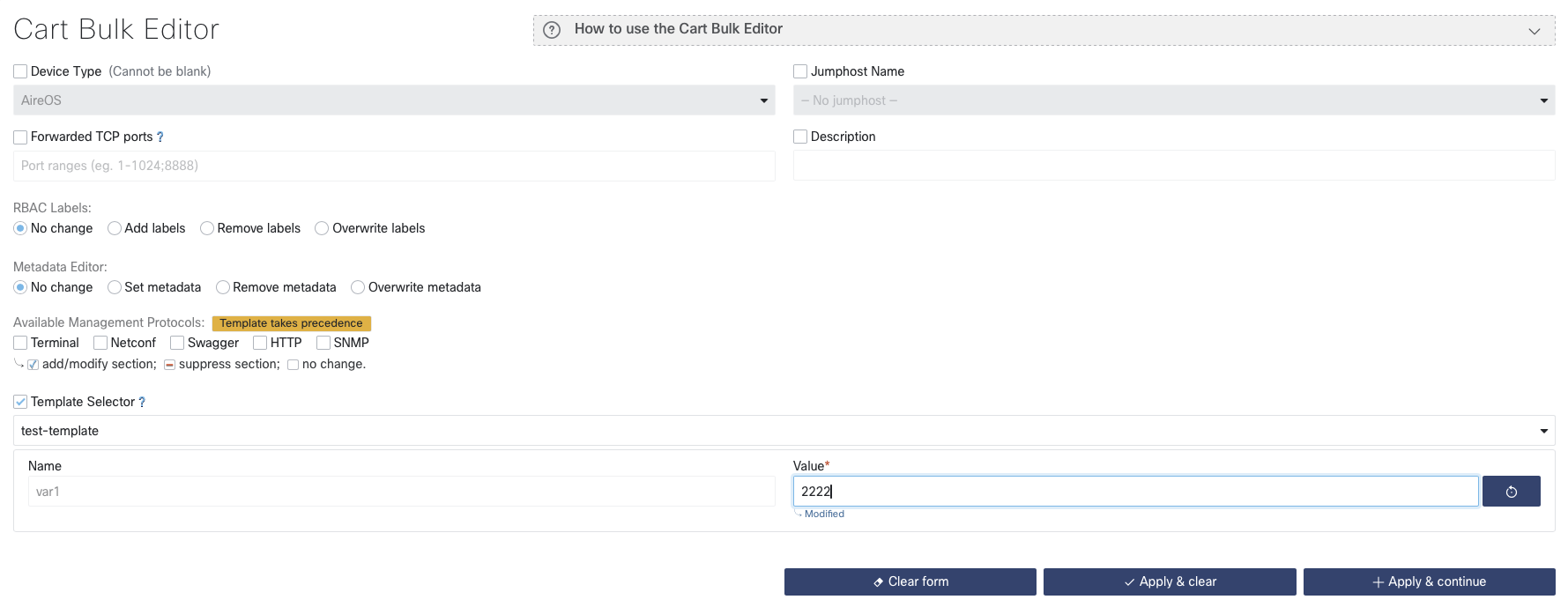Device Templates
Device templates allow sharing protocol configurations between devices and configuring protocols via YAML syntax. This enables advanced features like templating or using external sources for device authentication.
Templates can be found on the sidebar under Device Templates, which presents a table with
all created device templates. This view can be used to search, sort, create, update, or delete
device templates seamlessly, just like in other tables in the RADKit Service UI.
Device Template configuration consists of:
Template Name: A unique identifier for the template.
Description: An optional description.
The Device Templates feature allows users to define and manage protocol configurations for devices using the YAML language. This feature enables dynamic configuration of various communication protocols, such as:
http
swagger
snmp
terminal
netconf
Templates are created through the webUI and require the following inputs:
name: The name of the template (required, string).
description: A description of the template (optional, string).
variableDefinitions: User-defined variables that can be referenced in the YAML configuration (optional).
protocolsDefinitionTemplate: The main configuration in YAML format that describes the protocols.
The system dynamically parses the YAML configuration before establishing a connection to the device.
—
Adding a New Device Template
To add a new Device Template, navigate to Device Templates in the sidebar and then
click Add Device Template.
—
Default Variables
Three built-in variables are always available in every template and do not need to be declared:
device_name (string): The name of the device being connected to.
username (string): The name of the user attempting to connect to the device.
request_source (string): The source of the connection request to the RADKit Service. Possible values include: - cloud/{client_id} - asgi/username - direct/address:port - in_memory
These variables are automatically available within the YAML configuration and do not require explicit definition.
—
Complete YAML Example with Defaults
http:
authentication_extra: null
password: null
port: 443
protocol: HTTPS
use_insecure_algorithms: false
username: null
verify: true
netconf:
password: null
port: 830
use_insecure_algorithms: false
username: null
snmp:
community_string: null
port: 161
version: 2
swagger:
password: null
port: 443
schema_path: ''
use_insecure_algorithms: false
username: null
verify: true
terminal:
capabilities:
- UPLOAD
- EXEC
- INTERACTIVE
- DOWNLOAD
connection_method: SSH
enable_password: null
jumphost: false
password: null
port: 22
private_key: null
provisioning_variant: DEFAULT
use_insecure_algorithms: false
use_tunneling_if_jumphost: true
username: null
—
Example of Adding a New Template
This example demonstrates the required inputs and the use of YAML tags (!var, !concat, !combine, !external and !external-key).
#### Template Inputs:
name: MyDeviceTemplate
variableDefinitions: - custom_port (default: 22)
#### YAML Configuration (protocolsDefinitionTemplate):
http:
username: !var username
password: !external-key static_credentials
port: 443
verify: true
terminal: !combine
- username: !concat
- admin
- _ssh
- password: !external
name: cyberark
use: pass/terminal
- connection_method: SSH
- port: !var custom_port
swagger: !combine
- username: !var username
- password: !var another_external_source
- verify: false
—
Explanation of the Configuration:
HTTP Configuration: - The username is dynamically resolved using the !var tag. - The password is retrieved from the external source static_credentials using the !external-key tag. - The port is explicitly set to 443.
Terminal Configuration: - Combines fields using the !combine tag:
The username is dynamically built using the !concat tag to combine admin and _ssh into a single string (admin_ssh).
The password is retrieved from the external source cyberark using the !external tag with the use parameter, specifically extracting the value from the pass/terminal field.
The connection_method is explicitly set to SSH.
The port dynamically uses the custom_port variable with a default value of 22.
Swagger Configuration: - Combines fields using the !combine tag:
The username is dynamically resolved using the !var tag.
The password is retrieved from an external source (another_external_source) using the !var tag.
Verify Template: - A reusable block of configuration (verify_template) defines verify: true for SSL certificate verification.
Using Device Templates in Devices
To use a device template in a device, open the device edit modal, select the desired
template in the Template Selector, and provide all the mandatory and/or optional
variable values.
Or use Bulk Edit if you want to modify more than a single device.
Selecting a template in the Template Selector changes this value for all the devices
added to the cart. If no template is selected, the device template selection will be
removed from all the devices. If a template is selected, it will add or override the
template selection in every device in the cart.
Note
When a Device Template is selected, it takes precedence over other protocol configurations.



